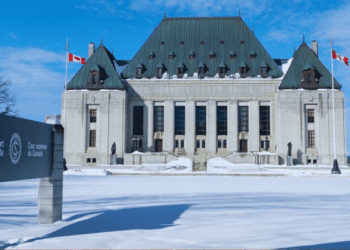Writing in the Financial Post, Geoffrey Manne and Julian Morris, who co-authored the MLI report “Credit where it’s due: How payment cards benefit Canadian merchants and consumers, and how regulation can harm them” , explain that consumers and small merchants would suffer if the NDP’s schemes for regulating payment cards were adopted. “If the NDP policy options we assess were implemented, Canada’s larger merchants would pay lower fees and some would charge more for goods bought using payment cards. But consumers and smaller merchants would suffer”, they write.
By Geoffrey Manne and Julian Morris, Special to Financial Post, December 6, 2013
The federal government’s Throne Speech emphasized a laudable commitment to protecting consumers by giving them “a voice, a choice, and fair treatment.” Unfortunately, when it comes to debit payments, consumers have been denied all three. Now the government has an opportunity to rectify the situation.
Both the Conservative government and the opposition New Democrat Party have committed themselves ostensibly to promoting the interests of consumers. So far, the Conservatives haven’t spelled out precisely what they plan to do. Meanwhile, the NDP set out several policy options in its “Orange Paper” and now calls for an “independent body” that would “recommend measures to end anti-competitive practices.” Fortunately, we recently produced just such a report.
Our report looked at payment systems around the world, in particular at the impacts of three of the main policy options discussed in the NDP’s Orange Paper: price controls on the interchange fees card networks charge merchants (the fee that the retailer pays to the card issuer when a consumer pays with a charge card), a prohibition on the ability of payment card networks to require merchants to “honour all cards” (i.e. to accept all cards with, e.g., the Visa logo if they accept any such cards), and a restriction on networks’ ability to prohibit merchants from charging consumers extra for payment card purchases.
For 17 years, Canada’s debit card system has operated as a government regulated monopoly – Interac – under which interchange fees have been capped. This well-intentioned regulation produced several unintended effects. For example, Canadians make fewer retail purchases online (about 3.4% in 2010) than Americans (5%) and Brits (13.5%), in part because of the more cumbersome process for transacting online with debit cards. In addition, less has been invested in system expansion and new technologies. Meanwhile, Canada’s shift to electronic payments has been retarded.
Another perverse effect is fee shifting: Price controls on debit card transactions lead banks to compensate elsewhere. Since the U.S. imposed price controls on interchange fees for debit cards in 2010, banks have limited free chequing accounts, especially for poorer consumers. Meanwhile, the average service charge on a non-interest-bearing chequing account increased by 25% in 2012. In Australia, imposition of price controls on credit card interchange fees resulted in an increase in annual card fees of 22% on standard credit cards (more on premium cards), costing consumers hundreds of millions of dollars per year.
In 2012, Canadian banks charged between $84 and $125 for basic accounts, compared to $68 in the U.S. — for nearly two decades price caps on interchange fees for debit transactions have forced Canadian banks to recover more of their costs by imposing charges on consumers. Further restrictions would only exacerbate the problem.
Surveys in both Australia and the U.S. found no evidence that mandated decreases in debit interchange fees have been passed on in the form of lower retail prices for consumers. Consumers now face considerably higher banking costs, yet pay the same for their consumer goods. Moreover, while interchange fees have fallen for large retailers, they have risen for many small merchants.
But there is a further warning from Australia, where merchants may surcharge payment card transactions. Not only have they imposed surcharges well above the cost of card payments, they have exploited consumers unable to pay with cash, such as when purchasing airline tickets online. Yet cash payers have seen no price reductions.
In contrast to its centrally-planned debit-card system, Canada’s credit card system has allowed competition and consumer choice to flourish, offering a model for all the country’s payment systems. If the NDP policy options we assess were implemented, Canada’s larger merchants would pay lower fees and some would charge more for goods bought using payment cards. But consumers and smaller merchants would suffer. Credit cards would become more expensive, consumers would face uncertainty over whether their cards would be accepted, and payments innovation would stagnate. This would discourage people from holding credit cards, adversely affecting online commerce, in particular.
Instead of bowing to special-interest demands for new anti-competitive interventions, the government should follow its own advice and promote competition among payment networks by removing interchange fee price controls and other regulatory burdens currently holding Interac back. This would enable all payment networks to invest in new technologies and build out their networks, knowing that if they offer a superior service they will be compensated for it.
Consumers are not protected by misguided regulations that serve the interests of large retailers. The Tory government seems to be charting the right course: adopting the NDP’s consumer-protection aims without falling for its anti-consumer policies.
Geoffrey Manne is Executive Director and Julian Morris is Senior Fellow at theInternational Center for Law & Economics. With Ian Lee and Todd Zywicki, they co-authored the Macdonald-Laurier Institute report, “Credit Where It’s Due.”




